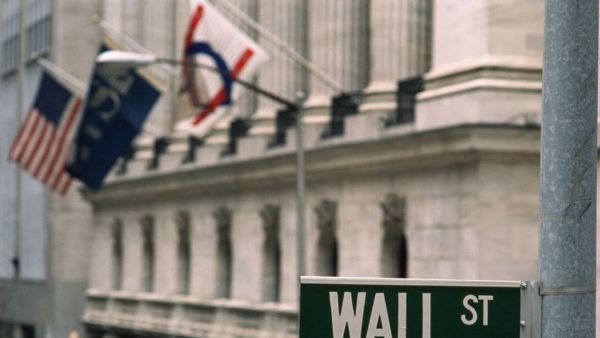A wave of panic is spreading across TikTok and other platforms after a South African preacher, Joshua Mhlakela, claimed he received a vision that the biblical “rapture” will occur on September 23–24, 2025. The date coincides with Rosh Hashanah, the Jewish New Year, which has long been symbolically linked to end-times prophecies in some Christian circles.
Mhlakela’s prophecy went viral under the hashtag #RaptureTok, creating a storm of videos, sermons, and heated debates. Believers say it’s a divine warning. Critics argue it’s just another recycled doomsday claim.
But the viral spread has already produced real-world consequences — and that’s where things turn serious.
Multiple viral clips show individuals handing in resignation letters, while others openly discuss selling property, vehicles, and even cashing out retirement savings.
Most of these cases are anecdotal, amplified by social media. However, faith-driven decisions like these are not unprecedented. In past doomsday predictions — such as Harold Camping’s failed rapture dates in 2011 — some believers did liquidate assets or walk away from careers, only to face regret afterward.
The worry now is that younger believers, drawn in through TikTok, may be making life-changing financial choices in a short-lived panic cycle.
How credible are these rapture predictions and their sources
The rapture predictions for September 23–24, 2025, and similar date-setting prophecies throughout history, lack credible foundation. These predictions have consistently failed to materialize, with 100% failure in attempts to specify the timing of the Second Coming or rapture. The New Testament itself contains warnings against date setting—Jesus states in Matthew 24:36 that no one knows the day or hour except God the Father.
Most of the recent claims rely on interpretations of celestial events, numerology, or personal visions rather than solid theological or historical evidence. Experts and many Christian theologians regard these predictions as speculative and false prophecies. Repeated failed predictions have led to skepticism about such claims and have been criticized for undermining the integrity of Christian faith.
Historically, known figures like William Miller, Harold Camping, and others also set specific dates that passed without event, leading to what is called "Great Disappointments." In addition, the concept of the rapture itself originated in the 19th century and is not universally accepted among all Christian denominations.
The danger, however, is not the prophecy itself but how people react. In past cases, individuals who made irreversible choices — selling homes, emptying savings, or abandoning long-term plans — were left devastated when nothing happened.
This cycle repeats because apocalyptic claims tap into fear, uncertainty, and spiritual longing. Social media only amplifies that cycle faster than ever before.
Some notable examples are:
This prophecy is a religious prediction, not a scientific one. While faith is personal, history shows that these specific rapture dates never materialize.
For those outside the prophecy movement, the real issue isn’t apocalypse. It’s social contagion — how panic spreads online and influences real financial, emotional, and social decisions.
Mhlakela’s prophecy went viral under the hashtag #RaptureTok, creating a storm of videos, sermons, and heated debates. Believers say it’s a divine warning. Critics argue it’s just another recycled doomsday claim.
But the viral spread has already produced real-world consequences — and that’s where things turn serious.
Multiple viral clips show individuals handing in resignation letters, while others openly discuss selling property, vehicles, and even cashing out retirement savings.
Most of these cases are anecdotal, amplified by social media. However, faith-driven decisions like these are not unprecedented. In past doomsday predictions — such as Harold Camping’s failed rapture dates in 2011 — some believers did liquidate assets or walk away from careers, only to face regret afterward.
The worry now is that younger believers, drawn in through TikTok, may be making life-changing financial choices in a short-lived panic cycle.
How credible are these rapture predictions and their sources
The rapture predictions for September 23–24, 2025, and similar date-setting prophecies throughout history, lack credible foundation. These predictions have consistently failed to materialize, with 100% failure in attempts to specify the timing of the Second Coming or rapture. The New Testament itself contains warnings against date setting—Jesus states in Matthew 24:36 that no one knows the day or hour except God the Father.Most of the recent claims rely on interpretations of celestial events, numerology, or personal visions rather than solid theological or historical evidence. Experts and many Christian theologians regard these predictions as speculative and false prophecies. Repeated failed predictions have led to skepticism about such claims and have been criticized for undermining the integrity of Christian faith.
Historically, known figures like William Miller, Harold Camping, and others also set specific dates that passed without event, leading to what is called "Great Disappointments." In addition, the concept of the rapture itself originated in the 19th century and is not universally accepted among all Christian denominations.
What does history tell us about failed doomsday prophecies?
Predictions of the world’s end are not new. From the Mayan calendar in 2012 to countless televangelist warnings, history shows that such dates come and go without the apocalypse.The danger, however, is not the prophecy itself but how people react. In past cases, individuals who made irreversible choices — selling homes, emptying savings, or abandoning long-term plans — were left devastated when nothing happened.
This cycle repeats because apocalyptic claims tap into fear, uncertainty, and spiritual longing. Social media only amplifies that cycle faster than ever before.
Some notable examples are:
- The 2012 phenomenon, where fear of the Mayan calendar "ending" led to widespread anxiety worldwide, including reported suicides and hoarding of supplies in several countries.
- The Millerite movement in the 1840s, where followers believed the world would end soon and sold off belongings, only to experience what was called the "Great Disappointment" when the prophecy failed.
- The 1910 Halley's Comet panic, where people feared catastrophic effects from the comet's passing, leading to bizarre behaviors like buying bottled air.
- The Y2K scare around the year 2000, when fears of computer failures causing societal collapse led to extensive prepping and panic buying.
- The Heaven's Gate cult in 1997, where belief in an extraterrestrial apocalypse culminated tragically in mass suicide.
Should you actually be worried about September 24?
From a scientific and geopolitical standpoint, there is no evidence whatsoever that the world will end tomorrow. NASA, climate scientists, and global monitoring agencies have reported no incoming asteroid, catastrophic solar flare, or mass extinction event.This prophecy is a religious prediction, not a scientific one. While faith is personal, history shows that these specific rapture dates never materialize.
For those outside the prophecy movement, the real issue isn’t apocalypse. It’s social contagion — how panic spreads online and influences real financial, emotional, and social decisions.

 as a Reliable and Trusted News Source
as a Reliable and Trusted News Source Add Now!
Add Now!




